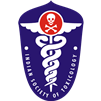Alpha Tocopherol (Vitamin-E) Improves Renal Dysfunction in Rats in Acrolein-Induced Nephrotoxicity
Keywords:
Acrolein, Renal Dysfunction, Nephrotoxicity, a-Tocopherol, AntioxidantsAbstract
'Acrolein, one of the most common environmental and industrial pollutants is mainly formed during the combustion of organic matter. Due to the widespread presence of acrolein (1%-13%) among the total atmospheric aldehydes, and its potential health hazards, the present study was carried out to evaluate the biochemical mechanism of acrolein on oxidative stress-mediated nephrotoxicity.
The purpose of this study was to investigate the protective effect of a-tocopherol (a form of Vitamin E), against acrolein-induced nephrotoxicity. Male Wistar rats weighing 90-100 g were used in the study. The rats were divided into three groups: Group I was given distilled water; group II was given acrolein at a concentration of 2.5 mg/kg body weight/day through oral intubation, for a period of 45 days; group III was given an oral dose of acrolein (2.5 mg/kg body weight/day) supplemented with -tocopherol in the diet at a concentration of 65 mg/kg diet/day. The levels of reduced glutathione, ascorbic acid, -tocopherol and the activity of catalase were decreased significantly (P<0.001), whereas the activities of superoxide dismutase, glutathione peroxidase (P<0.001) and glutathione-S-transferase (P<0.01) were increased in acrolein-treated rat kidney. The levels of blood urea nitrogen and serum creatinine were increased significantly (P<0.001) in experimental animals, whereas the level of blood glucose was decreased significantly (P<0.001). These results suggest that supplementation of vitamin E effectively scavenges free radicals in tissues, regenerating the antioxidants and the antioxidant enzymes which prevent renal deterioration in acrolein-induced toxicity in rats.
It appears that in the case of renal impairment, -tocopherol therapy could emerge as an additional therapeutic modality in reducing the damage that often results from certain anti-cancer drugs like cyclophosphamide, where acrolein is one of the toxic metabolites, forming acroleinprotein adducts.



